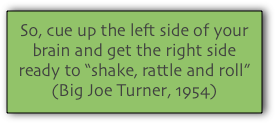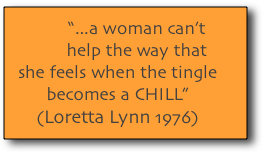by Gary Powell

In the next five minutes, I want to change your mind: I want to challenge your long-held conceptions of the performing arts and music education. I realize that asking for a paradigm shift in how we perceive the arts is tricky business. But I no longer risk anything when I tell you that there is a lot of unmovable concrete holding up our academic institutions. And on top of that concrete, with a broader perspective of what education is and who should bring it, there does exist the upside of greater prosperity by way of building an effective network of like-minded individuals…and willing institutions.
The shift will have been successful when education and opportunity conspire to meet and greet your greatest aspiration. If you can imagine a spark – your spark like no other spark – then you can imagine your future in this new world, one that can become inspired in a single moment. Only then can someone else join you in it. What is holding you back in moving your dreams file into the more active aspirations folder? Forget that worn-out unrequited-silent-genius model. It never really worked; take Van Gogh for example and keep both your ears.
Every gig you play for free is ladened with fear. Which means that every empty seat you see in a theater or concert hall, conversely, is an opportunity for your insight to cheat fear. Cheat it now. But, insight to what? The first thing to do is to introduce your work to chance. Chance has more to do with us than we thought. Within that idea of power living inside a single moment, chance can change our lives forever. A college education is a huge collection of these moments when we become enmeshed with scholars, mentors and that not-to-be-discounted chance that move us toward discovering our uniqueness and becoming it.
Outside of the fear model there are more opportunities now within the arts than ever in recorded history – we just need new models in education and new inclusive models in business to mine the gold in order to experience a personal and sustainable prosperity within this new, yet undeveloped construct. When aspirations and aptitude, existing business models and curriculum, are all in concert together, they make a powerful formula for creating successful lives: purposeful and self-directed.
The problem is that stock prices in aspiration have been dropping semester by semester, year after year, decade after decade. The individual student’s aptitude, not meeting the existing academic criteria, is harder and harder for the institution to even recognize. Business models within the recording arts have taken to the smoky back room while ivory tower curricula is stuck in the nineteenth century. Here, we must all agree to not make fear the basis of our relationships, otherwise fear and predictability is all that will be engendered.
If we educators look more deeply into our students’ experiences, mine their aptitudes, inspire their aspirations, and stretch curricula to include all forms of music and entrepreneurship in the arts, universities will have more than the usual ten former students performing at the fundraiser event in praise of their university. They will add ten a year, then twenty and eventually… your school will need a bigger concert hall. And… your school will deserve it – all because of you the student, and you the professor, and you the administrator for the collaborative effort you have each engendered.
I started my professional career sitting in that green grass with guitar in hand.



 “The really valuable thing in the pageant of human life seems to me not the political state, but the creative, sentient individual, the personality; it alone creates the noble and the sublime, while the herd as such remains dull in thought and dull in feeling.” –
“The really valuable thing in the pageant of human life seems to me not the political state, but the creative, sentient individual, the personality; it alone creates the noble and the sublime, while the herd as such remains dull in thought and dull in feeling.” –  … A new breed of developmental theory is likely to arise… Its central technical concern will be how to create in the young an appreciation of the fact that many worlds are possible, that meaning and reality are created and not discovered, that negotiation is the art of constructing new meaning by which individuals can regulate their relations with each other.” –
… A new breed of developmental theory is likely to arise… Its central technical concern will be how to create in the young an appreciation of the fact that many worlds are possible, that meaning and reality are created and not discovered, that negotiation is the art of constructing new meaning by which individuals can regulate their relations with each other.” –  “The nature of musical perception has not been discovered because the key to the secret of music is physiological—it lies in the nature of the process by which man perceives sounds—and the answer would require the joint effort of a physiologist, a psychologist and a philosopher.” –
“The nature of musical perception has not been discovered because the key to the secret of music is physiological—it lies in the nature of the process by which man perceives sounds—and the answer would require the joint effort of a physiologist, a psychologist and a philosopher.” – 
 Dennis Razze
Dennis Razze



